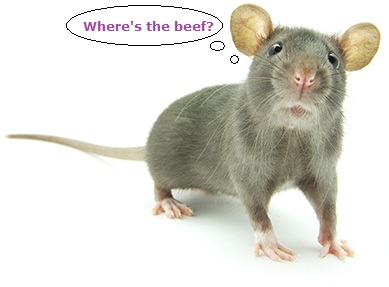
The Protein-Combining Myth
You may have heard people saying that vegetarians and vegans have a problem with getting enough protein…
Well…think again.
The source of this belief is some studies on rats over a century ago!
Researchers found that infant rats don’t grow as well on plants as they do when meat is included in the diet. But humans are not rats and baby infant rats don’t grow well on human breast milk either. So does that mean we shouldn’t breastfeed our babies? Of course not! Rats are rats and humans are humans. The difference? Rat babies grow about TEN times faster than human babies and this explains why rat milk has TEN times more protein than human milk, and why they need lots more protein pro rata than human babies do.
But how does this challenge that common opinion that we plant-eaters don’t get enough protein?
Well, the argument goes something like this: high biological value (HBV) or ‘complete’ proteins are only derived from animal foods that contain all the essential amino acids – ‘essential’ because our bodies do not make them in sufficient quantities and we have to get them from the foods we eat. Low biological value or ‘incomplete’ proteins are those that do not have all the essential amino acids and, because individual plants do not contain all the essential amino acids. QED – plant-eaters have got a problem.
This one is pretty easy to disprove, since you just have to think about what these big herbivore beasts eat before we eat them…
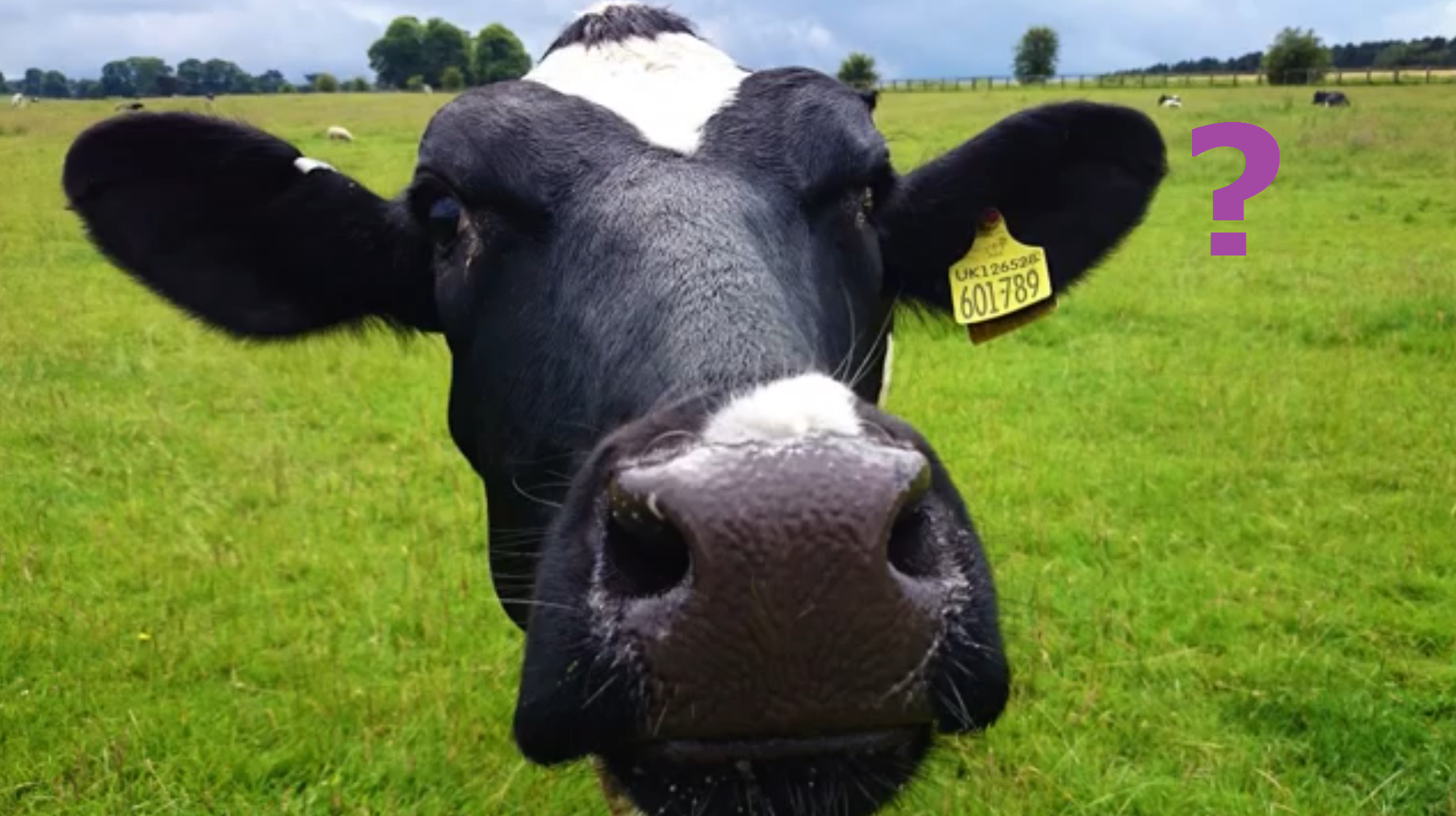
…plants!
In the first instance, all protein for EVERY animal on the planet comes from plants. And not just protein –all the essential and non-essential vitamins come from plants, and minerals and all the trace elements come from the ground that the plants grow in. The same ground where Mrs Moo wanders about and eats her fill of grass. Oh – and of course, just to satisfy those observant readers, vitamin D is the rare exception because it is the ‘sunshine vitamin’ which is made when skin is exposed to sunlight; and micro-organisms that grow from the ground also provide some pretty useful stuff, too – such as vitamin B12.
But even when this is accepted by the sceptic, how can they be reassured that plants really do contain ENOUGH protein as compared with animal foods? Have a look:
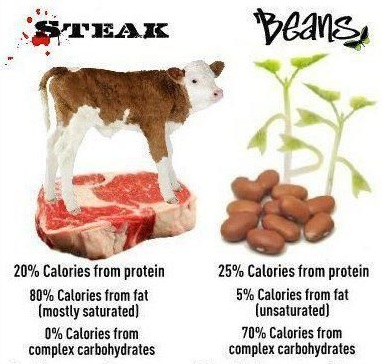
Still not convinced? A bit more detail then:
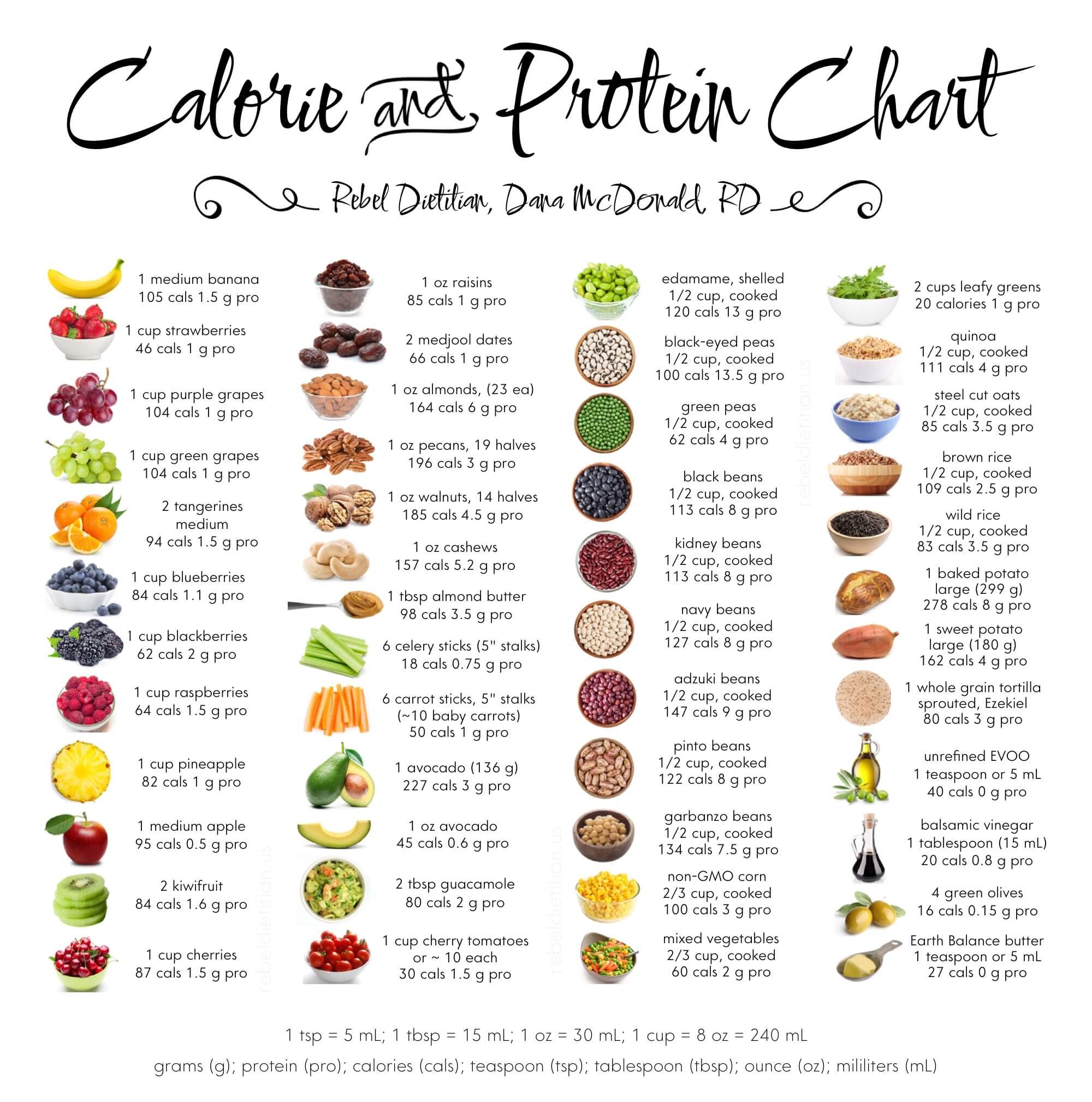
And how much protein do we need per day?
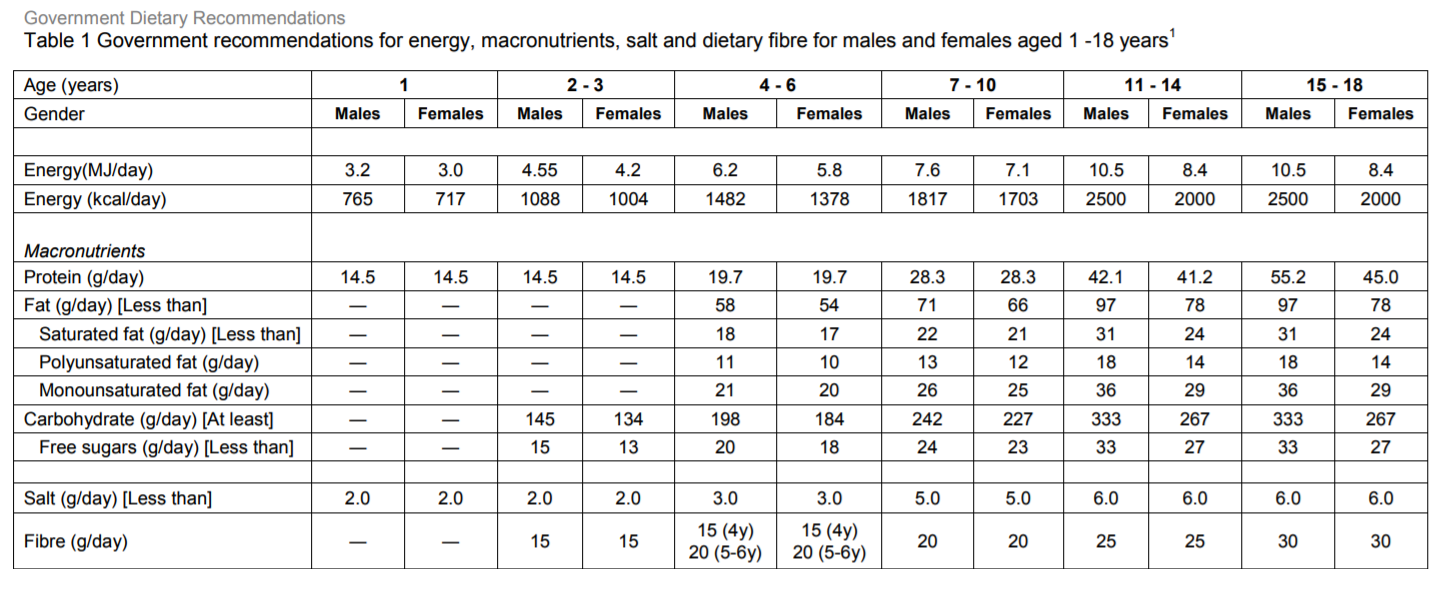
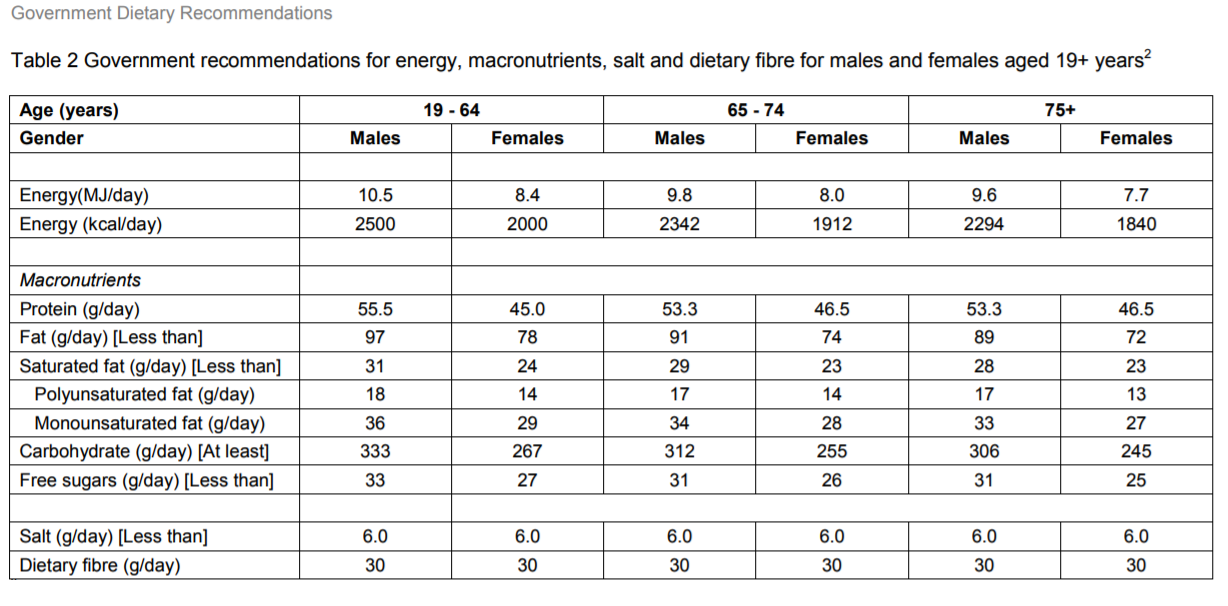
This equates to an adult human requiring around 0.75g of protein per kilogram of ideal body weight (British Nutrition Foundation 2015). So, for instance, a 60 kg adult woman would need no more than 42 grams of protein per day for normal levels of activity.
What does this mean in terms of real plant food?
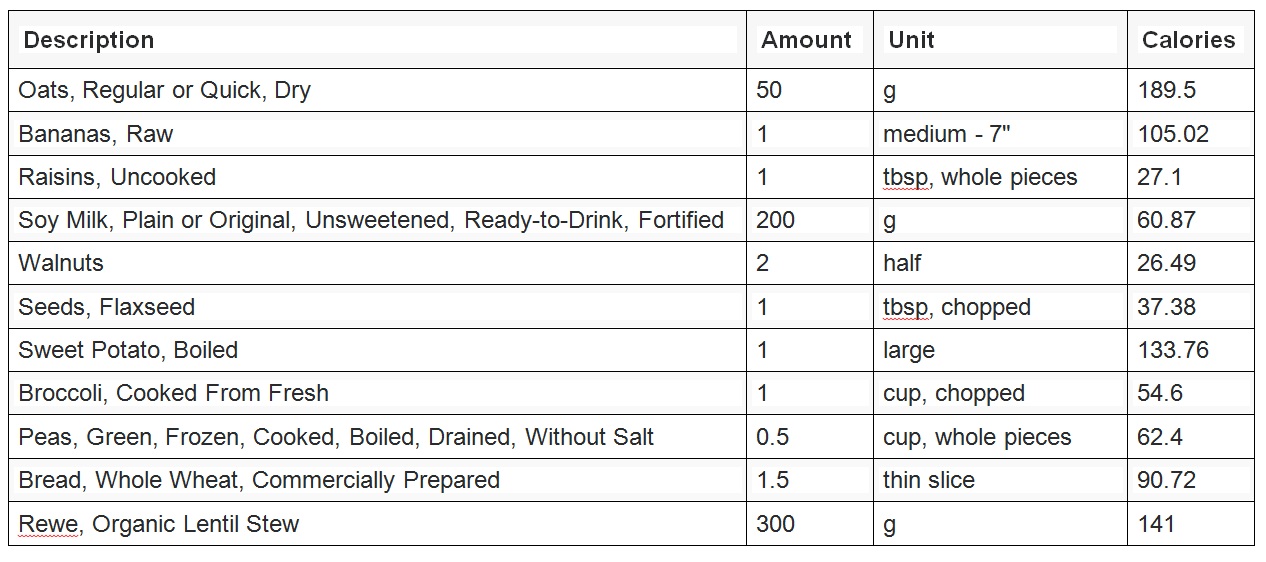
Calories Summary |
Energy: 928.8 kcal / 1650 kcal (56%) Protein: 41.7 g / 56.0 g (74%) Carbs: 157.7 g / 130.0 g (121%) Fat: 17.8 g / 65.0 g (27%) |
And this is only 56% of the calories required in a day for this particular person. We could now ask quite the opposite question: Do vegetarians and vegans get TOO MUCH protein? We know that most meat-eaters on the standard American diet (SAD diet – no pun intended) certainly do…This will be the basis of another article, where I will explain why increased levels of plant protein do not have the harmful effects produced by increased levels of animal protein.
In the meantime, if you want more evidence of the high levels of protein in the average vegetarian and vegan diet (let alone the supercharged whole food plant-based diet), then watch this video (with transcript and references) by one of my nutritional heroes, Dr Michael Greger. You will be given all the evidence you need that those eating plant-based diets average about twice the estimated average daily protein requirement.
So, where are we now? I guess the next argument would hit at the heart of this article: It may well be that plants contain protein BUT, you will hear some people say, plants have ‘limiting amino acids’ (that is, certain plant groups lack certain essential amino acids) and this means that plant-eaters have to be REALLY careful to combine food groups in the same meal so that they can get all the essential amino acids that their bodies need.
Well, let’s look at this. What they are claiming can be seen in the following chart:
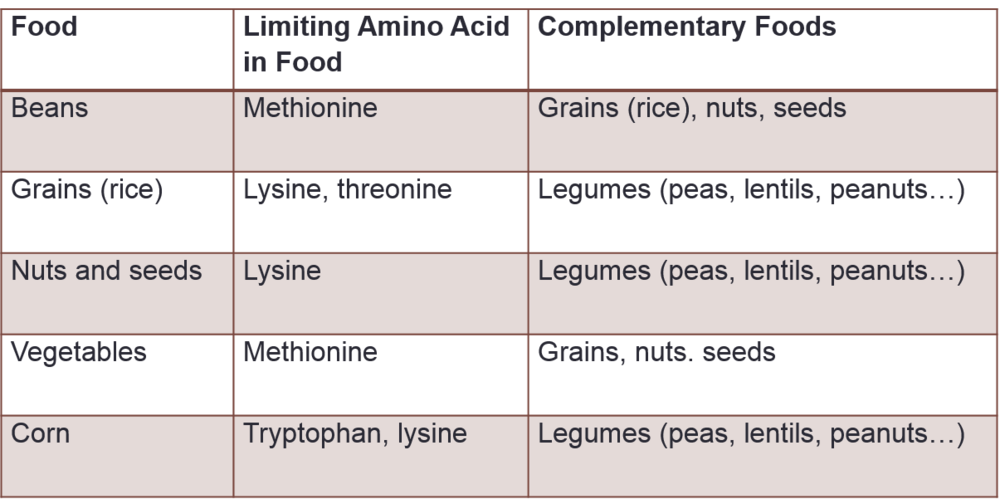
The idea is that we need to eat, for instance, beans with grains so that we get the methionine from the grains that is missing from the beans, and the lysine and threonine from the grains that are missing from the beans.
However, the whole of this assumption is based on a misunderstanding. Firstly, all but one plant food contain ALL the essential amino acids, admittedly in varying quantities. And the ONLY food that does not contain all the essential amino acids only lacks tryptophan…Guess what food item that is?

Gelatin – the basis of a wobbly jelly! I think we can live with the fact that it contains zero tryptophan…
The idea of “protein combining” appeared in the February 1975 issue of Vogue magazine. It suggested, without any scientific evidence, that we plant-eaters absolutely needed to combine our proteins – rice and beans, for instance – in order to make up for the individual lack of essential amino acids. However, this was and remains a total fallacy and was refuted decades ago.
Indeed, another nutrition hero of mine, Dr. John McDougall actually challenged the American Heart Association for one of their 2001 publications in which they questioned the completeness of plant proteins. Soon after, they backed down and acknowledged that “…a vegetarian diet based on the AHA guidelines of 5 to 6 servings of whole grains and 5 or more servings of vegetables and fruit would, in fact, supply all of the amino acids necessary for health.” And let me tell you, as a whole food plant-eater myself, that I get through at least twice that amount of servings of whole grains, fruit and vegetables each day!
Furthermore, as Dr Greger points out in his video (with transcript and references): “It turns out our body maintains pools of free amino acids that it can use to do all the complementing for us, not to mention the massive protein recycling program our body has. Some 90 grams of protein are dumped into the digestive tract every day from our own body to get broken back down and reassembled, and so our body can mix and match amino acids to whatever proportions we need, whatever we eat, making it practically impossible to even design a diet of whole plant foods that’s sufficient in calories, but deficient in protein.”
The conclusion? We plant-based eaters need never worry our healthy heads about amino acid imbalances from the plant proteins that make up our usual diets. We just need to eat a colourful variety of plants (legumes, grains, nuts/seeds, vegetables/fruits), take plenty of exercise, sleep well and avoid unhealthy stress and worry.
There’s one less thing to worry about…
